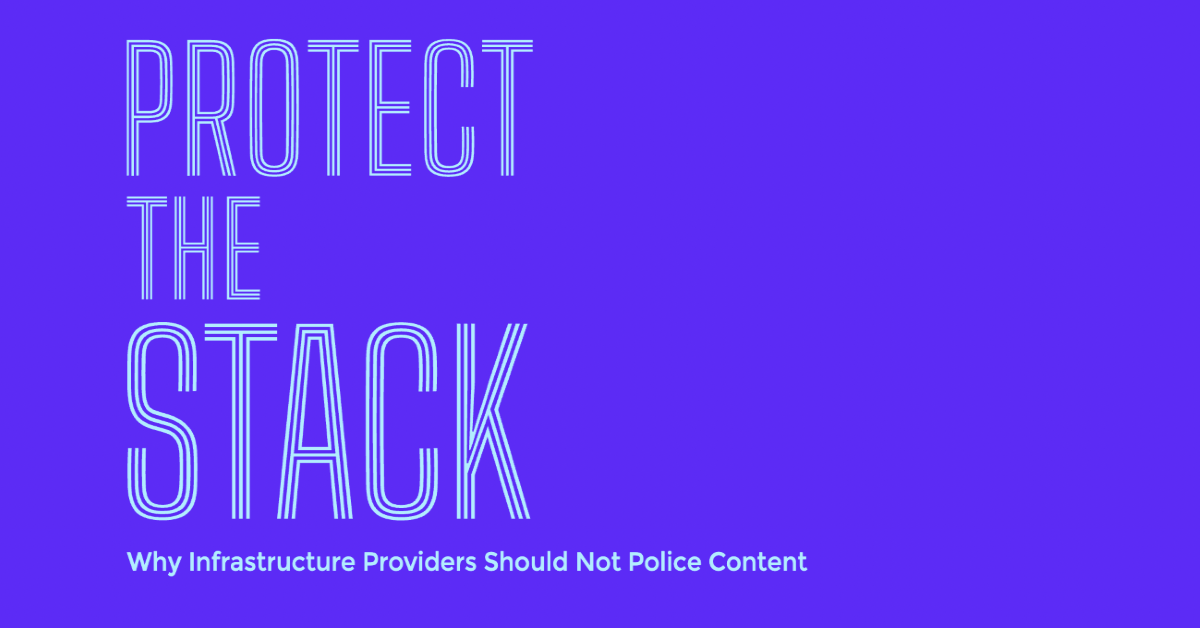NEW YORK – Today, the National Coalition Against Censorship (NCAC), which represents 59 education, publishing, religious and arts organizations and Don’t Delete Art (DDA), a project of NCAC and several other organizations and artists, joined the Electronic Frontier Foundation and over 50 other organizations and institutions in supporting Protect the Stack, a statement calling on internet infrastructure providers not to censor user-generated content.
Protect the Stack argues that internet infrastructure companies—which include payment processors, internet service providers, web hosts, and other companies whose services are integral to the internet’s accessibility and functions—should not moderate the content produced by users or refuse them service based on this content.
Content moderation applied at the internet’s infrastructural level threatens the free expression of artists. In recent months alone, NCAC has seen HostGator, a website host company, erase an artist’s original digital drawings, and Stripe, a payment processor, revoke service access to an artist selling her artwork. In both instances, the service providers appear to take exception to artistic depictions of nudity which are not unlike anything that is on view to general audiences in museums. The inconsistency of those decisions and the opaque application of vague terms of service have made it clear that infrastructure companies are ill-suited to moderate user expression.
“Internet infrastructure companies help make the web a safe and robust space for free speech and expression,” said EFF Legal Director Corynne McSherry. “Content-based interventions at the infrastructure level often cause collateral damage that disproportionately harms less powerful groups. So, except in rare cases, stack services should stay out of content policing.”
Interactive internet services such as social media platforms are expressly designed to facilitate the exchange of user-generated content, and therefore take an active interest in the oversight of such content. Internet infrastructure companies, on the other hand, are designed to facilitate the access and functionality of a robust internet that can support all modes of activity. Such infrastructure companies lack the expertise and resources to make content decisions, and they should not act as content police.
Read the full statement at https://protectthestack.org.
——
National Coalition Against Censorship
Since its inception in 1974, the National Coalition Against Censorship (NCAC) has functioned as a first responder in protecting freedom of expression, a fundamental human right and a keystone of democracy. Representing 59 trusted education, publishing, and arts organizations, NCAC encourages and facilitates dialogue between diverse voices and perspectives, including those that have historically been silenced.
Don’t Delete Art
Don’t Delete Art (DDA) is a project to draw attention to the damage done when social media companies censor art, and to work towards greater protection of artistic expression across platforms. The project is a collaboration between artist-activists, art collectors and human rights organizations that was convened in March 2020 by the National Coalition Against Censorship (NCAC).


